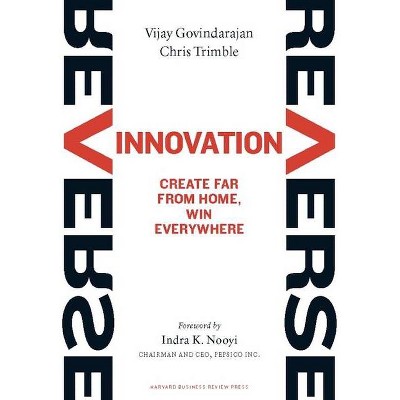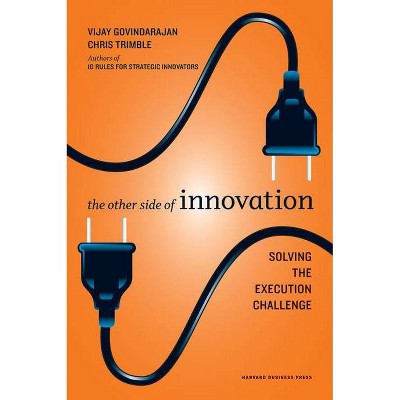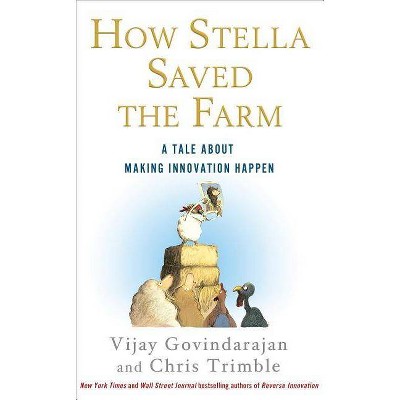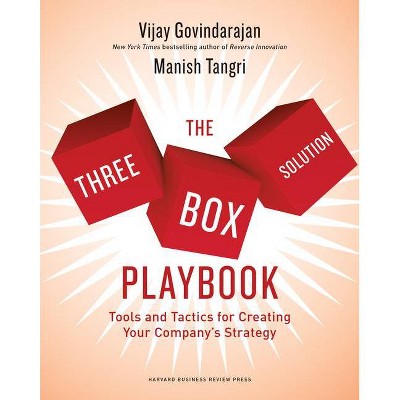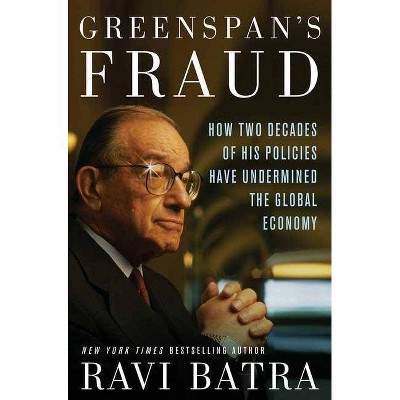Reverse Innovation in Health Care - by Vijay Govindarajan & Ravi Ramamurti (Hardcover)
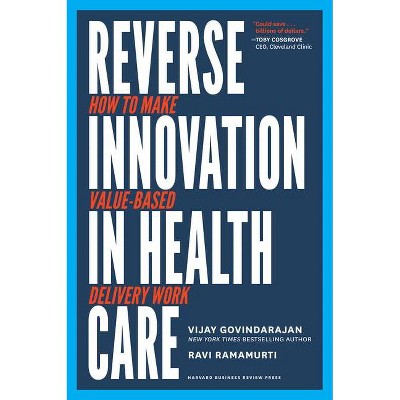
Similar Products
Products of same category from the store
AllProduct info
<p/><br></br><p><b> About the Book </b></p></br></br>Health care in the United States and other nations is on a collision course with patient needs and economic reality. For more than a decade, leading thinkers including Michael Porter and Clayton Christensen have argued passionately for value-based health care reform: replacing delivery based on volume and fee-for-service with competition based on value, as measured by patient outcomes per dollar spent. Though still a pipe dream here in the United States, this kind of value-based competition is already a reality--in India. Facing a giant population of poor, underserved people and a severe shortage of skills and capacity, some risk-taking private enterprises have found a way to deliver high-quality health care, at ultra-low prices, to all patients who need it. Govindarajan and Ramamurti studied these Indian value-based models in depth. After investigating forty health care organizations and conducting field research on sixteen, they identified seven "exemplar" providers that consistently delivered high-quality health care at ultra-low cost, while being profitable, financially sustainable, and able to scale up their operations. Their secret sauce consists of five principles that work together to produce value-based care. Arguing that now is the time for the United States and other "rich" nations to learn from the "poor," this book shows how the innovations developed by these Indian exemplars are already being practiced by some far-sighted US providers--reversing the typical flow of innovation in the world. The authors describe four different pathways being used by these organizations to apply Indian-style principles to attack the exorbitant costs, uneven quality, and incomplete access to health care in the United States.--<p/><br></br><p><b> Book Synopsis </b></p></br></br><p><b>Health-Care Solutions from a Distant Shore</b></p><p>Health care in the United States and other nations is on a collision course with patient needs and economic reality. For more than a decade, leading thinkers, including Michael Porter and Clayton Christensen, have argued passionately for value-based health-care reform: replacing delivery based on volume and fee-for-service with competition based on value, as measured by patient outcomes per dollar spent.</p><p>Though still a pipe dream here in the United States, this kind of value-based competition is already a reality--in India. Facing a giant population of poor, underserved people and a severe shortage of skills and capacity, some resourceful private enterprises have found a way to deliver high-quality health care, at ultra-low prices, to all patients who need it. This book shows how the innovations developed by these Indian exemplars are already being practiced by some far-sighted US providers--reversing the typical flow of innovation in the world.</p><p>Govindarajan and Ramamurti, experts in the phenomenon of reverse innovation, reveal four pathways being used by health-care organizations in the United States to apply Indian-style principles to attack the exorbitant costs, uneven quality, and incomplete access to health care. With rich stories and detailed accounts of medical professionals who are putting these ideas into practice, this book shows how value-based delivery can be made to work in the United States. This bottom-up change doesn't require a grand plan out of Washington, DC, agreement between entrenched political parties, or coordination among all players in the health-care system. It needs entrepreneurs with innovative ideas about delivering value to patients. Reverse innovation has worked in other industries. We need it now in health care.</p><p/><br></br><p><b> Review Quotes </b></p></br></br><br><p>Advance Praise for <b><i>Reverse Innovation in Health Care</i></b>: </p><p><b>Kenneth L. Davis, MD, President and CEO, Mount Sinai Health System, New York City--</b><br>A provocative volume of ideas.</p><p><b>Robert Pearl, MD, professor, Stanford University School of Medicine; author, <i>Mistreated: Why We Think We're Getting Good Health Care--and Why We're Usually Wrong</i>--</b><br>. . . a must-read for both health-care leaders and policy experts.</p><p><b>Donald M. Berwick, MD, President Emeritus, Institute for Healthcare Improvement; former Administrator, Centers for Medicare & Medicaid Services--</b><br>If American health-care leaders . . . do not take this astounding book seriously, shame on them.</p><p><b>Mary Ackenhusen, President and CEO, Vancouver Coastal Health, Canada--</b><br><i>Reverse Innovation in Health Care</i> offers inspirational and practical insights. It will be required reading for my leadership team.</p><p><b>Judd A. Gregg, former US Senator--</b><br>. . . should be part of any consideration of how we improve America's health-care system.</p><p><b>Tawfig Al Rabiah, Minister of Health, Saudi Arabia--</b><br><i>Reverse Innovation in Health Care</i> is a great and well-rounded approach to tackling many of the current health-care issues.</p><p><b>John Cochran, MD, former Executive Director, Kaiser Permanente Federation--</b><br>This book is timely and very important for American physicians, health-care executives, and legislators to read. Many of these case studies are very portable.</p><p><b>Toby Cosgrove, MD, former President and CEO, Cleveland Clinic--</b><br>. . . a rich new source of cost-saving medical innovation that deserves our most serious attention.</p><br><p/><br></br><p><b> About the Author </b></p></br></br><p><b>Vijay Govindarajan</b> is one of the world's leading experts on strategy and innovation and is the Coxe Distinguished Professor at Dartmouth's Tuck School of Business and a former Marvin Bower Fellow at Harvard Business School. He is the author of a number of influential books, including the <i>New York Times</i> and <i>Wall Street Journal</i> bestselling <i>Reverse Innovation</i>.</p><p><b>Ravi Ramamurti</b>, a top scholar in international business, is the University Distinguished Professor of International Business & Strategy and Director of the Center for Emerging Markets at Northeastern University in Boston. His research and consulting work focuses on strategy and innovation by firms operating in, or from, emerging economies. He is the author or editor of seven books, including <i>Understanding Multinationals from Emerging Markets</i>.</p>
Price History
Price Archive shows prices from various stores, lets you see history and find the cheapest. There is no actual sale on the website. For all support, inquiry and suggestion messagescommunication@pricearchive.us
